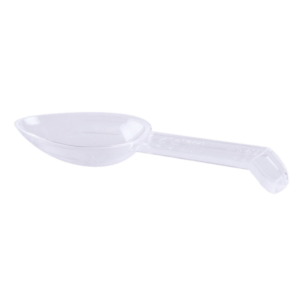
Omega-3 and the Aging Brain: What You Can Do for Memory and Mood
Thu 8 May 2025 by Lewis Wiggins
“I walk to the kitchen and forget why. Sometimes I search for words that I would normally know instantly.”
Do you recognize that? Forgetfulness or “brain fog” is common in many people over 45. Usually it’s harmless, but sometimes it raises questions. Am I too busy? Am I sleeping poorly? Or… is this the beginning of something more serious?
While memory changes are a normal part of aging, you can certainly support your brain. Among other things, with the right nutrition. And that’s where omega-3, particularly DHA, plays an important role.
Changes in the Brain after 45
As we age, our brain changes too. It happens gradually, but is noticeable:
- The blood flow to the brain slightly decreases
- Communication between brain cells becomes slower
- Brain cells recover more slowly, and fewer new cells are produced
- Stress, lack of sleep, and nutrition have an increasing impact on your mental clarity
These changes are not immediately cause for concern, but they do require attention. Especially because many people over 45 deal with busyness, menopause, work stress, or caregiving. And that demands a lot from your mind.
Omega-3 Fatty Acids: Literally Building Blocks of your Brain
Did you know that a large part of the fat in your brain consists of DHA, an omega-3 fatty acid? DHA is an essential component of cell membranes in your brain. Without sufficient omega-3, these cells function less effectively, affecting memory, mood, and focus.
This is What Omega-3 Does in the Brain:
- Helps keep cell membranes flexible (important for signal transmission)
- Supports the function of neurotransmitters like serotonin and dopamine
- Inhibits inflammatory processes in the brain, which play a role in cognitive decline
- Contributes to the formation of new connections between brain cells
Both EPA and DHA are involved in these processes, but DHA is especially indispensable as a structural component of the brain.
What Does Science Say?
Dozens of studies have now been conducted on the relationship between omega-3 and cognitive decline in older adults. The outcomes vary, but the general trend is positive.
📌 A review study (meta-analysis) in people over 60 with mild cognitive complaints showed that those using omega-3 supplements scored slightly better on memory tests than the group without fish oil (source: MVO.nl).
📌 The IVG (Information Center for Dietary Supplements & Health) also confirms that there are indications that EPA and DHA contribute to the memory and concentration ability of seniors (source: ivg-info.nl).
📌 Other studies show that lower omega-3 levels in the blood are associated with faster shrinkage of brain volume, especially in areas important for memory and emotions (such as the hippocampus).
Much scientific research shows that omega-3 is good for the brain. Based on this, EFSA has approved the health claim that DHA contributes to the maintenance of normal brain function, at a daily intake of at least 250 mg.
Can Omega-3 Prevent Dementia?
That’s a frequently asked (and understandable) question. The honest answer: no, omega-3 does not prevent dementia. But there are indications that it can help slow cognitive decline in some people, especially if caught early.
Omega-3 works mainly supportively for:
- Mild memory loss
- Forgetfulness due to stress or fatigue
- Decline in concentration or mental clarity
It’s not a miracle cure, but it is a fundamental nutrient for a healthy brain. Think of it more as daily care from within, rather than a medicine.
Omega-3 and Mood: more Peace of Mind
It’s not just about memory. There are also indications that omega-3 plays a role in your mental balance. Low omega-3 levels have been associated with:
- Gloominess or irritability
- Increased sensitivity to stress
- Symptoms of depression or anxiety
The exact cause is complex, but one explanation lies with serotonin, a substance that regulates your mood. Omega-3 can support the function of serotonin and inhibit inflammation in the brain, which has a positive influence on your state of mind.
📚 In a publication by Harvard Health, omega-3 is even mentioned as a possible supplementary support for mild depressive complaints, alongside, and never instead of, regular care.
Facts Myths about Omega-3 and your Brain
🧠 Fact: Your brain partly consists of omega-3 fatty acids.
🧠 Fact: DHA is important for memory, focus, and cell communication.
🧠 Fact: Supplementation can be very valuable if you eat little fatty fish (salmon, tuna, mackerel, herring, anchovies, and sardines).
❌ Myth: Omega-3 completely prevents dementia.
❌ Myth: You notice an effect immediately after one week of use.
Omega-3 works slowly but steadily. Don’t expect sudden clarity, but think of it as investing in the long term, just as you would with your heart or bones.
How much Omega-3 Do You Need?
The Health Council advises eating fatty fish twice a week. This provides about 250 to 500 mg of EPA and DHA per day. Many people (over 80%!) don’t achieve this. In that case, a supplement is a reliable solution.
For people over 45 with memory complaints or mood problems, some studies recommend an intake of 1000 mg or more per day. Always consult your doctor or pharmacist if in doubt.
Choose a Supplement that Suits your Brain
Not every supplement is the same. When choosing omega-3, pay attention to the following:
- Sufficient EPA DHA – minimum 250 mg per day
- Good absorbability – liquid form is often better absorbed
- Also rich in vitamin D – also supports brain function and mood
- Purity freshness – tested for heavy metals and oxidation
🟡 Möller’s Omega-3 is naturally rich in DHA, EPA, and vitamin D. One spoonful a day supports your brain, your memory, and your mood, without burdening your body.
What else Can You Do for your Brain?
Supplements are an addition. The basis remains a healthy lifestyle:
- Keep learning – read, puzzle, learn something new
- Exercise daily – exercise improves blood flow to your brain
- Eat Mediterranean – lots of vegetables, fish, nuts, and olive oil
- Sleep well – nightly rest is essential for memory
- Limit chronic stress – stress increases the chance of mental decline
One Spoonful a Day for Clear Thinking
Whether you’re sometimes more forgetful, have trouble concentrating, or just want to keep your brain fit: omega-3 is a simple, natural way to take good care of yourself. Today, tomorrow, and in ten years.
Möller’s Omega-3 – A Spoonful of Life




